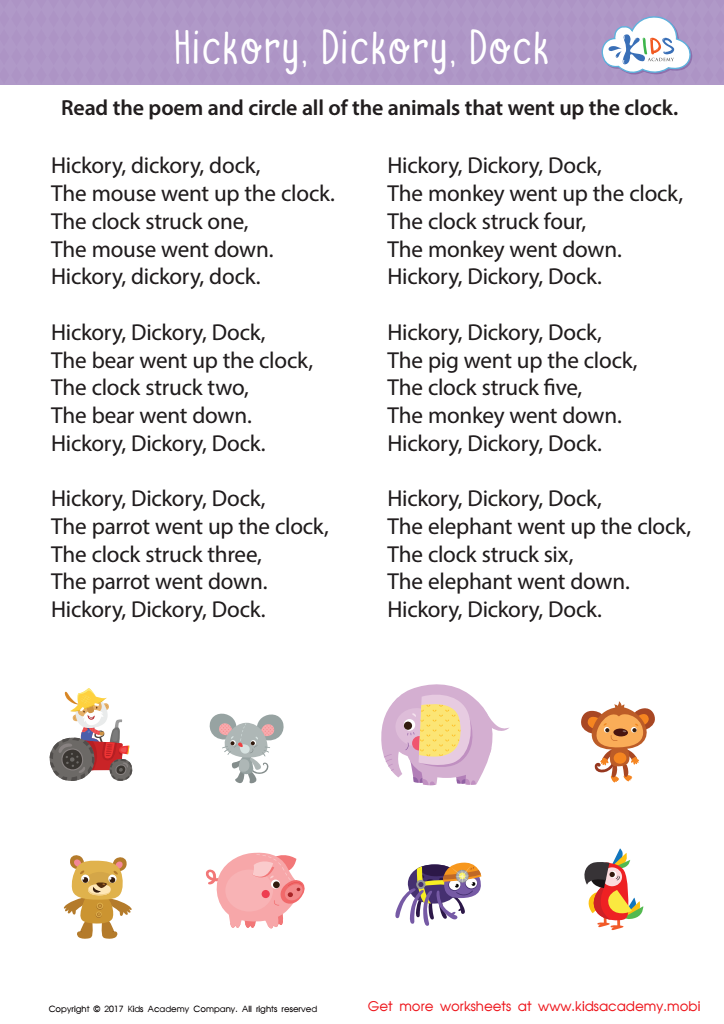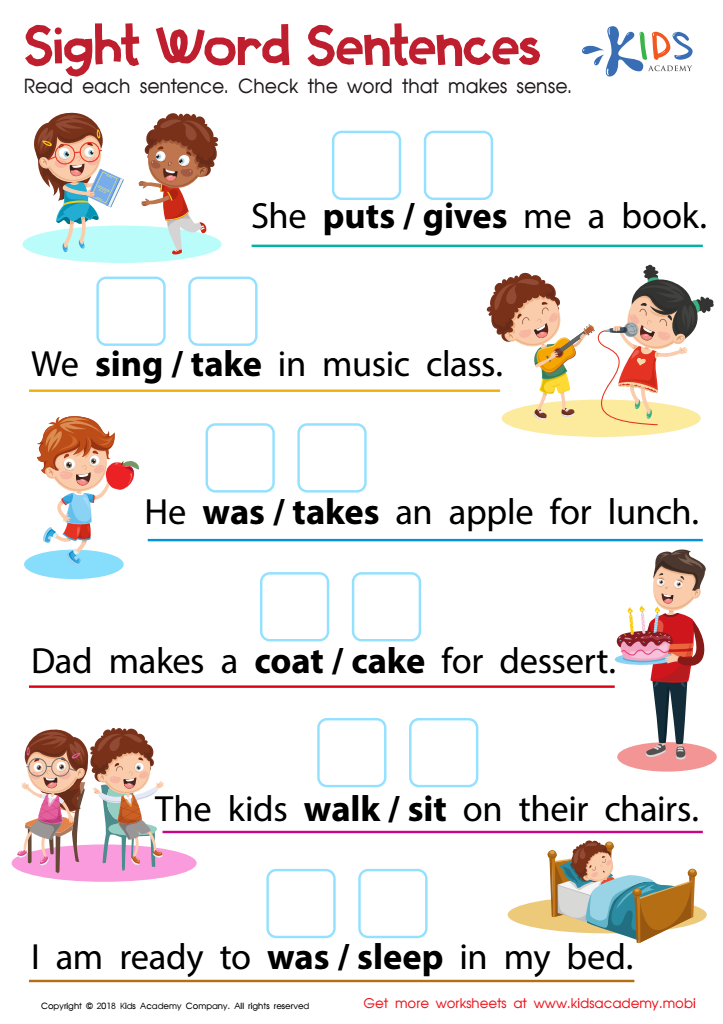Extra Challenge Reading Fiction Worksheets for Ages 7-9
3 filtered results
-
From - To
Introducing our "Extra Challenge Reading Fiction Worksheets for Ages 7-9"! Perfectly crafted to engage young readers, these worksheets provide stimulating questions and creative prompts to deepen comprehension and enhance critical thinking. Each sheet features captivating stories that spark imagination while ensuring advanced skills development. Designed by educational experts, these resources cater to advanced readers seeking an extra challenge. Encourage your child to explore diverse characters, settings, and plots, fostering a lifelong love for reading. Perfect for classroom use or supplementary home practice. Dive into the adventure of stories and bolster your child’s reading journey with our thoughtfully curated worksheets!


Baa Baa Black Sheep Printable


Hickory Dickory Dock Sequencing Worksheet


Sight Words Sentences Worksheet
Extra Challenge Reading Fiction for ages 7-9 is essential for multiple reasons, benefiting both academic development and personal growth. This crucial period sets the foundation for future learning, as students transition from learning to read to reading to learn. At this age, children's cognitive abilities and imaginations are rapidly expanding; extra challenge reading enriches this development by introducing more complex plots, nuanced characters, and varied vocabulary.
For parents and teachers, fostering a love for challenging reading enhances comprehension skills, increases attention span, and improves critical thinking. Such books often address themes like empathy, problem-solving, and moral dilemmas, helping children understand and navigate the world around them. Furthermore, encountering and overcoming challenges in reading builds resilience and confidence, traits that carry over into other areas of their lives.
On a practical level, higher-level reading skills are correlated with improved performance in all academic subjects, not just language arts. Competence in reading promotes better understanding of instructions, ease in writing, and more accurate critical analysis. Encouraging challenging reading habits at this age lays a strong foundation for lifelong learning. Parents and teachers who prioritize these practices not only boost a child’s academic potential but also help nurture a more informed, empathetic, and curious young reader.

 Assign to My Students
Assign to My Students



















